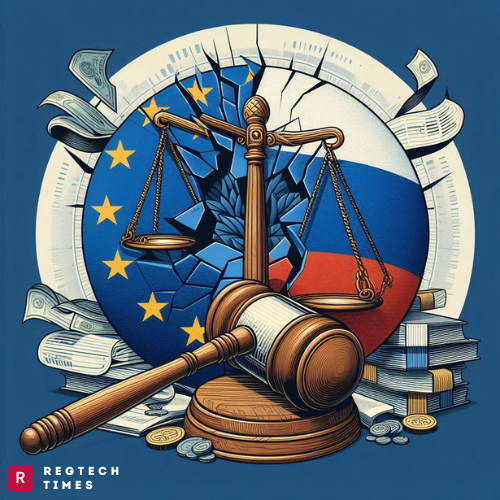Erosion of Rule of Law
The European Commission is deliberating the imposition of sanctions on Slovakia due to significant concerns over the erosion of the rule of law under Prime Minister Robert Fico’s government. This potential action highlights increasing tensions between Brussels and Bratislava as the EU grapples with Slovakia’s recent political developments and legal reforms.
At the heart of the controversy is Slovakia’s apparent regression in judicial independence. The Slovak government has faced criticism for dismantling an anti-corruption office that was crucial in monitoring the use of EU funds. Established to combat fraud and ensure transparency, the office’s elimination in February has sparked alarm within EU circles, raising fears of mismanagement and corruption in the distribution of EU funds.
Controversial Revisions to Criminal Code
Recent amendments to Slovakia’s criminal code have further intensified scrutiny from Brussels. The revised code, enacted in July, reduces penalties for a range of crimes, including fraud and corruption. Critics argue that these changes could lead to increased criminal activity and undermine the rule of law. The European Commission is currently assessing the impact of these revisions, considering whether they breach EU standards on legal and fiscal oversight.
The European Union’s conditionality mechanism allows it to withhold funds if there is a significant risk of misuse. This could affect Slovakia’s allocation of €12.8 billion in cohesion funds, which are essential for regional development. Additionally, the EU may reconsider the €2.7 billion in Covid-19 rescue grants provided to Slovakia, as maintaining the anti-corruption office was a condition for receiving these funds. The potential financial repercussions highlight the gravity of the situation and the EU’s commitment to upholding the rule of law.
Political Turmoil and Civil Liberties
The political landscape in Slovakia has also become a battleground for democratic values. Fico, who returned as prime minister for his fourth term a year ago, leads a coalition that has taken a controversial stance on several issues. This includes a shift in foreign policy regarding Ukraine and a tough stance on illegal migration. Domestically, Fico’s administration has been accused of targeting political opponents and curtailing freedoms.
China Semiconductor Sanctions Spark Economic Challenges for Asian Firms
One significant incident was an assassination attempt on Fico in May, which he controversially labeled as an act by an “activist of the Slovak opposition.” This interpretation has fueled accusations that Fico is using the attack to justify further crackdowns on civil society and dissent. There are concerns that upcoming legislation could restrict public protests and limit freedoms of speech and assembly, exacerbating the erosion of the rule of law.
EU’s Response and Future Implications
The Slovak opposition, particularly pro-EU parties, has been vocal in challenging Fico’s policies. They have accused Justice Minister Boris Susko of eroding the rule of law through legislative changes and attempts to extricate a convicted former prosecutor from prison. Culture Minister Martina Šimkovičová has also faced backlash for firing directors of key cultural institutions and overseeing a controversial overhaul of the state media company.
The European Commission, led by President Ursula von der Leyen, is contemplating a formal warning to Slovakia. This letter would outline the potential sanctions unless the Slovak government amends its policies. EU Commissioner Věra Jourová, responsible for rule of law enforcement, has repeatedly voiced concerns over the deterioration of judicial independence and media freedom in Slovakia.
Jourová has indicated that while the EU is prepared to act against specific breaches of legislation, it will maintain a measured approach. She has expressed deep concern over the situation, reflecting both a professional obligation and personal unease as a Czech citizen watching developments in a neighboring country.
The unfolding situation in Slovakia presents a complex challenge for the European Union. Balancing the enforcement of democratic norms with maintaining constructive relationships with member states is a delicate task. The potential sanctions serve as a reminder of the EU’s commitment to upholding the rule of law and its readiness to act against perceived violations.
As Slovakia navigates these turbulent waters, the international community will be watching closely. The outcome of the EU’s deliberations could have far-reaching implications for Slovakia’s political future and its relationship with the broader European bloc.


